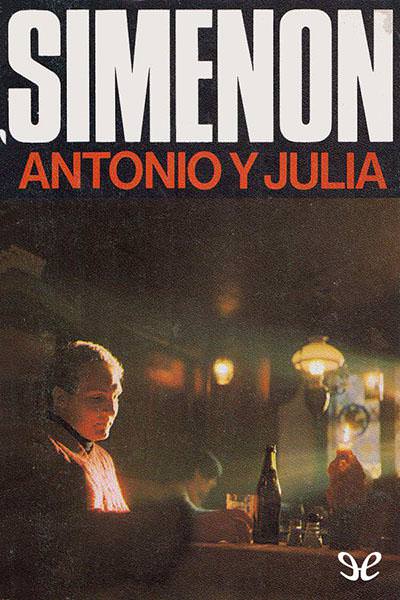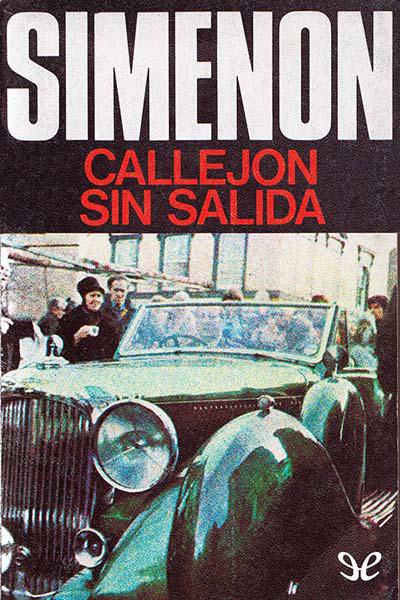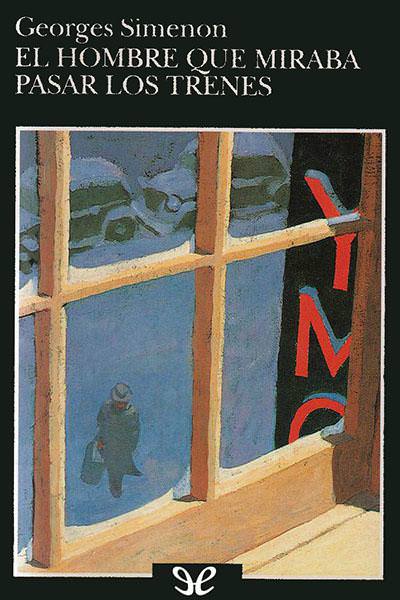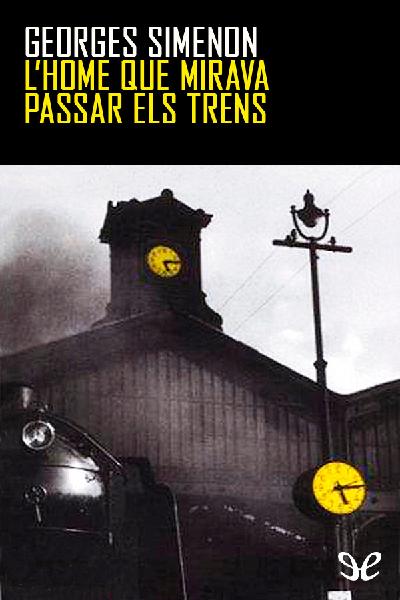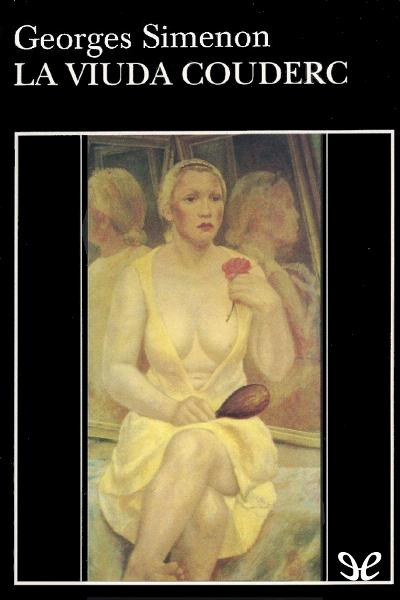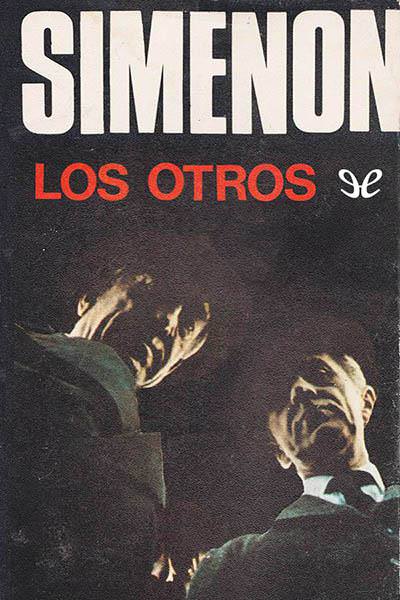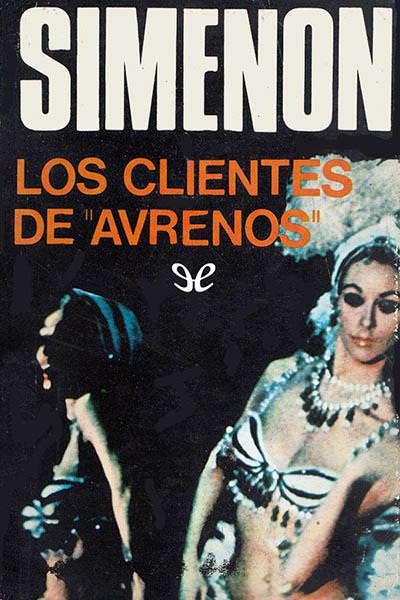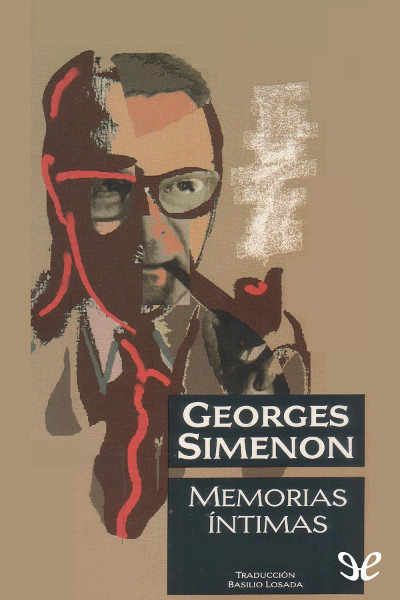oleebook.com
L'assassino de Georges Simenon
de Georges Simenon - Género: Italian
Sinopsis
Il primo martedì di gennaio le strade sono coperte di neve, e sui canali si è formato uno strato di ghiaccio il dottor Hans Kuperus lascia Sneek, il paesino della Frisia in cui vive, e si reca ad Amsterdam, come tutti i primi martedì del mese. Questa volta, però, non partecipa alla riunione dell'Associazione di Biologia, né trascorre la notte dalla cognata. Compra una pistola, invece, se la mette in tasca, riprende il treno, poi il traghetto che attraversa lo Zuidersee, poi un altro treno. E quando, prima di arrivare a Sneek, il convoglio rallenta e si ferma, il dottor Kuperus agisce quasi senza riflettere: scende e si avvia, camminando nella neve, tra le ombre della notte, verso il bungalow in riva al lago dove (come ha appreso da una lettera anonima pervenutagli un anno prima) troverà la moglie in compagnia del suo amante. Tutto avviene molto rapidamente: quando i due escono, Kuperus li uccide e ne getta i corpi nel lago. Dopodiché, come ogni sera, va all'Onder de Linden, il caffè dove si riuniscono i membri dell'Accademia del Biliardo. Di quella prestigiosa istituzione, che accoglie tutti i notabili del luogo, Kuperus sogna da tempo, invano, di essere eletto presidente: ora però potrebbe riuscirci, perché il presidente in carica (il conte Schutter, l'uomo più ricco del paese, quello che ha la casa più bella, la barca più bella, le donne più belle, anche quelle sposate) giace in fondo al lago, decisamente morto. A casa, dopo, Hans Kuperus farà una cosa sulla quale aveva a lungo fantasticato senza mai osare metterla in atto: si porterà a letto Neel, la florida, soda, rosea domestica. Così comincia questo romanzo, in cui Simenon segue con impeccabile sicurezza la discesa nellabisso di uno dei suoi eroi più tipici: uno di quelli che osano «passare la linea» e ne pagano il prezzo.
Descargar
Descargar L'assassino ePub GratisLibros Recomendados - Relacionados
Reseñas Varias sobre este libro
Ognuno di noi ha la sua camera azzurra, in cui è nudo davanti allo specchio della propria coscienza, solo con sè stesso.
Può capitare di dividere la camera azzurra con un altro, ma si è sempre un 1+1, non si è in due. Pur dividendo la stanza, Tony e Andree sono chiusi ognuno nella propria solitudine emotiva, come se la parete intorno a loro fosse una gabbia in cui sono chiusi le emozioni e i sentimenti. Tony ha trovato in Andree una femmina con cui fare sesso sfrenato, a differenza della moglie Gisele sempre con gli occhi chini sul cucito e un sorriso stirato sulle labbra. Nella sua camera azzurra Tony è un maschio soddisfatto dei momenti di passione che trascorre con la bella e sensuale Andree.
E Andree? Cosa prova? La narrazione procede dal punto di vista di Tony, è lui che racconta al giudice e allo psichiatra che lo incalzano con domande stringenti, con continui flashback, le giornate a partire dallultimo incontro con Andree, creando nel lettore la curiosità di sapere perchè Tony sia in carcere, cosa abbia commesso Così di Andree non sappiamo quasi nulla, di lei abbiamo solo unimmagine di una impudica donna nuda nel letto della camera dalbergo appagata dopo il sesso -limmagine che apre il romanzo-; solo alla fine avremo unidea più precisa di lei, lei che scopriamo pian piano essere il motore della storia, rinchiusa nella camera azzurra della passione ossessiva, cieca e letale.
Quante forme ha lamore? Tante, miliardi, quanti sono gli esseri umani che abitano la terra. Questo romanzo ne racconta in modo essenziale e raffinato una, che ha la forma di un incubo tenebroso come labbraccio mortale della mantide.
francia179 s Glenn Russell1,421 12.3k Read
The Blue Room - Classic Georges Simenon, a tale of passion and obsession told in seven short, gripping chapters, each chapter shaped into dramatic intensity by maestro Simenon as if a movement within an orchestral suite. If any novel can be judged as perfect, The Blue Room is that novel.
I'm hardly alone in my praise. In his review for The Irish Times, John Banville wrote: "The Blue Room is a wondrous achievement, brief, inexorable, pared to, and agonizingly close to the bone, and utterly compelling; in short, a true and luminous work of art."
A primary key for any novelist is how to structure time, things the inclusion of a character's backstory to provide depth, when and how to maximize dramatic tension and suspense by alluding to future events via the art of foreshadowing. It is precisely his handling past and future in The Blue Room where Simenon proves himself an exquisite master of the craft. There's ample reason André Gide described Georges Simenon as "the greatest of all, the most genuine novelist we have had in literature."
The first several pages not only set the stage but, as we come to learn, every single exchange between main character Tony and his lover Andrée prove pivotal in the drama unfolding step by step right up until Andrée's fiery words explode in the last line of the last chapter.
Ah, that first scene. Hot late afternoon on August 2nd. We're at the Hôtel des Voyageurs in Triant, in a country village outside Paris, in a hotel room painted blue. Tony and Andrée have just concluded a round of furious lovemaking when Andrée begins asking Tony a series of question about his love for her and their future. "Could you really spend the rest of your life with me?" Tony answers: "Of course . . . " Oh, Tony, if you only knew the weight of those two words and how they would resonate through every hour of your waking life from that point forward.
Looking out the window in the Blue Room, Tony spots Nicolas, Andrée's husband, making his way toward the hotel. Quick exchange of words and directions from the maid and Tony hustles out the hotel's back door. Then there's an abrupt shift -Professor Bigot, the psychiatrist appointed by Monsieur Diem, the Examining Magistrate, is grilling Tony over the words and events that took place in the Blue Room months ago back on that fateful afternoon of August 2nd.
Thus, by way of a series of interrogations of prisoner Anthony Falcone, we become acquainted with a more detail account of the lives of both Tony and Andrée. For Tony, he's a successful salesman of tractors and other agricultural equipment; his brother Vincent is the owner of Hôtel des Voyageurs, he's married to pale, passive Gisèle and has little daughter Marianne, his father and mother immigrated from Italy. For Andrée, she's from a respectable village family and grew up in a château, although she married Nicolas, the son of a grocer, even as a tall, somewhat aloof schoolgirl at the village elementary school, she secretly fell in love with her fellow village schoolmate Tony.
And, most importantly, we come to known more about Tony's relationship with Andrée stretching back eleven months prior to their August 2nd Blue Room tryst to the very first time they had sex in a wooded grove not far from a roadway. Simenon leans on his years writing all those many dozen Inspector Maigret novels in rendering vivid, telling details in every encounter Tony has with officials conducting their examination, as in the author's words here:
"Would you care for a short break, Monsieur Falcone?"
"May I open the window?"
He had to have air. From the start of this session, ostensibly much the others, he had felt stifled. These statements of fact had sinister, nightmarish, overtones, because of their bearing on the tragic events of which he had known nothing as he went about his business that day.
The above quote is from Chapter 6. Even late in the novel, we as readers are still held in suspense regarding why Tony is in jail, the whereabouts of Andrée, the nature of the crime, the details revolving around the victim or victims. What we do know is the newspapers and local townspeople are in an uproar and demand Tony's blood.
Such hatred and vengeance brings to mind another tale of another small French village - Guy de Maupassant's 1883 The Piece of String where an outsider comes to town and is wrongly accused of stealing a wallet. Although the wallet is turned in by another party, no matter, the villagers will not reverse their verdict - outsider Maitre Hauchecome is guilty as charged. Although he grew up in the village, Tony is not French; he is Italian ergo not only an outsider, even worse, Tony is a foreigner.
What really injects juice into the tale is Tony's relationship with Andrée. Although Tony has had brief affairs with women during his married life, at age 33 he has never experienced anything close to Andrée's sizzling, sweaty passion. Whoa, luscious honey! And who would have thought? Even going back to his schoolboy days, Tony viewed Andrée as a statue, a tall, discrete, standoffish girl that would never show the slightest interest in someone him. Who would have guessed her infatuation and unflinching love all these years and her willingness to take on the much more active roll as wild Dionysian sex goddess goading him to swirls of new highs of emotional intensity during their lovemaking?
Such a tall naked female body with a man's naked body she has always found beautiful. Here are Simenon's words from the Blue Room on the hot August 2nd: "A short while ago, during their ferocious love-making, these sounds have flowed in to them and become one with their bodies, their saliva, their sweat, the whiteness of Andrée 'belly, the darker tones of his skin . . . "
The power of love and passion creating a world unto itself. Well, almost - there are those other family members to consider. And the power of love can be rivaled by an equally powerful emotion - hatred. Read all about it in The Blue Room.
Georges Simenon, 1903-1989favorite-books169 s4 comments Jim Fonseca1,119 7,478
I d the way the author set up the story as a murder mystery. But its not a whodunit. Its a who got killed? We gradually come to realize that the main character is in prison awaiting trial for murder. Did he kill his lover? Her husband? His wife? Or is he erroneously being held for a murder he didn't commit? We are kept in suspense about what exactly is going on until about the middle of the book.
Its really a good psychological study of the thinking of a man who loves his wife and child but falls into a torrid love affair. We know hes 33. She must be about the same age because they were schoolmates and she had a crush on him as a child. She initiates the affair now that they are both married and living in the same town. He was unaware that their entire circle of acquaintances knew of the affair which he thought they were being so careful to keep secret.
The book begins with a couple of pages of explicit sex which could explain why it was published in French in 1955 but not in English until 1964. But thats it; no more after those first pages. But that first encounter was so intense that we are told: How could he guess that he was to live through this scene ten times, twenty times, more times indeed than he could count, each time in a different frame of mind, seeing it each time in a different light? Their affair takes place in the blue room of the title.
(This intense first encounter may be a motif with Simenon. In The Accomplices, which I recently read, the ending of the book revolves around a man trying to repeat a first love scene one last time.)
While he is being endlessly questioned by lawyers and the prosecutor we watch as he is forced to rethink his life and his attitudes. At times it seems that hes not clear about what his feelings were and what happened to him. Most of the time hes apathetic to his situation. When hes asked Do you want your lawyer here? his response is basically what difference does it make?
Theres an ethnic twist too. The man and his brother were sons of an Italian immigrant in France and they occasionally speak in Italian to each other. The story is set in Poitiers in west central France and we get a bit of local color.
One passage I d: She had recently lost her two front baby teeth, and the gap gave her an almost pathetic look. It was as though, for a few weeks, she was both child and little old woman.
Im always struck by themes and events that reappear in books I recently read. So, for example, in this book by Simenon one of the themes is how people occasionally choose to work against their best interests. In The Blue Room the case against the main character partly involves a series of anonymous letters that he received. The accused man consistently denies that he received them despite the fact that he discussed them with the postmaster who testified about the letters to the prosecutor. His lawyer tells him that destroys any chance he has in his upcoming trial if hes so obviously lying about that, who will believe anything else he says? I recently read Notes from Underground by Dostoevsky and that same theme how we sometimes work against our best interests - was a major theme in that work.
This is my third of Simenons romans durs lately. These are his hard novels, as opposed to his Inspector Maigret murder mysteries. I gave both Dirty Snow and The Accomplices '4s' but I d this one better, so Ill give it a 5.
Images:
The Blue Room by Picasso from phillipscollection.org
Poitiers from fle.fr
[Revised, spoilers hidden 8/1/23, typos 10/13/23]]belgian-authors french legal-thriller ...more153 s3 comments Grazia432 187
"Lui l'aveva amata?"
Questo è uno di quei romanzi da "somministrarsi" quando si sta attraversando un momento di crisi con la lettura.
Se avete voglia di qualcosa che vi inchiodi alle pagine, che susciti l'urgenza di continuare a leggere, vi faccia tornare con ansia a capire cosa sia mai successo, vi faccia affezionare ai personaggi per quanto negativi essi possano essere, ecco allora "La camera azzurra" di Simenon è il libro che fa per voi.
Una scrittura magistrale, un ritmo perfetto, una narrazione che non lascia respiro. Sono arrivata all'ultima pagina in cui, anche quando tutto era svelato, Simenon è riuscito a stupirmi con il quadro finale di sintesi.
"Non era una cosa reale. Non c'era niente di reale nella camera azzurra. O piuttosto si trattava di una realtà diversa, impossibile da comprendere altrove."
Cosa è reale e cosa non lo è? Cosa attraversa il cuore dell'uomo? E come è possibile che si riesca ad essere oscuri anche a se stessi?
Un libro perfetto sia per una lettura di intrattenimento che per una lettura "pipponica" (per chi ama cioè farsi domande leggendo).
Pulsioni, senso di colpa, volontà inarrestabili, meccanismi inesorabili una volta innescati.
Chapeau a Simenon che ha saputo scrivere un simile gioiello!63 s Nazanin1,144 766
3.5 Stars
The story told through Tonnys interrogation. We read about his life and other characters through his eyes. In these stories we know whos the victims are and then just guess whos the killer but in this one, we dont know about the victims (until after the first half) and even its Tonnys interrogation, were not sure if he is really guilty! And that was interesting for me to guess all of these! It was a good-quick crime read and my only problem was I couldnt connect with writing and sometimes I felt lost! Told in single POV, 3rd person and it's a short stand-alone novel. Overall it was an interesting read and hope you it too!crime mystery58 s Cristian Fassi102 220
Questo è stato il primo libro di Simenon che ho letto, erano anni che amici e conoscenti mi raccomandavano di addentrarmi nel mondo dello scrittore francese. Per iniziare ho scelto un libro fuori dalla saga di Maigret per non rimanere attaccato ad un personaggio che so si ripete in 75 romanzi dello scrittore.
Una storia unica con un finale vero.
La camera azzurra cattura dalla prima pagina, con quel morso sulle labbra che diventa il simbolo della passione e la pazzia della storia che segue. Si legge tutta di un fiato e mantiene sempre la tensione, dosando gli avvenimenti, le morti e la sorte dei protagonisti in maniera esemplare.
Dopo questa prima incursione Simenoniana non potrò più tornare indietro, mi delizia l'idea che ho già ben 100 romanzi sull'ebook che mi aspettano.
[Aggiornamento giugno 2019] E non sono più tornato indietro... ne sono seguiti altri romanzi, molti della serie del commissario Maigret tra qui Il porto delle nebbie, il mio preferito finora.
[Agg. ottobre 2020] Nel mio viaggio senza U-Turn sono già più di una ventina letti, fra i quali c'è il mio nuovo preferito: Una testa in gioco
Simenon ha come merito la sua semplicità nella scrittura, e di conseguenza la semplicità nella lettura, con "La camera azzurra" però, ha creato magari il suo romanzo più complesso.in-italiano letture-201942 s piperitapitta982 381
La meccanica azzurra.
Non si può nemmeno dire che sia la solita storia, il solito triangolo, perché le persone coinvolte in questo dramma della passione sono quattro: i due amanti, Tony e Andrée, e i rispettivi coniugi.
Non si può nemmeno dire che si tratti di un giallo, perché è chiaro quasi dal principio cosa sia accaduto, o almeno che qualcosa di tragico sia accaduto a Saint-Justin e Triant i paesini della provincia francese dove sono avvenuti i fatti.
Come, e quando, Simenon ce lo racconta attraverso numerosi flashback e gli interrogatori subiti da Tony, e a partire dall'ultimo incontro dei due amanti nella camera azzurra, la stanza dell'albergo che fa da scena abituale ai loro incontri clandestini.
Quello che conta, alla fine, non è nemmeno tanto il chi, il cosa, il perché, ma il lavoro di scavo psicologico che l'autore opera sui due protagonisti, la minuziosa attenzione con la quale studia e riesce a trasmettere al lettore le loro evoluzioni interiori, la crudezza, da me inattesa, con la quale descrive quell'ultimo incontro fra Andrée e Tony, carico di erotismo e carnalità, l'incredulità dell'uno e la folle determinazione dell'altra.
E così, quella camera azzurro liscivia, liscivia alla quale Simenon fa riferimento più volte, simbolo della pulizia e del bucato immacolato steso ad asciugare al sole, diventa simbolo di passioni sotterranee incontrollate e di relazioni vissute senza curarsi delle conseguenze o della loro reale importanza, ma capaci di trasformare la liscivia in lascivia.
Se penso a una parola sola che possa rappresentare La camera azzurra, quella parola è meccanismo.
È un meccanismo perfetto quello congegnato da Simenon, non un solo tassello è fuori posto, non una sola emozione viene risparmiata al lettore.
E un meccanismo, imperfetto questa volta, o forse più che imperfetto implacabile, sono le ripercussioni delle nostre azioni, che mettono in moto ingranaggi che una volta avviati non è più possibile arrestare, perché nulla dipende più esclusivamente da noi.
Possiamo cambiare idea, dolercene, cercare di tornare indietro, ma sappiamo che non è possibile: noi, le nostre vite, siamo il risultato delle parole che abbiamo pronunciato, di quelle che abbiamo taciuto, delle azioni che abbiamo compiuto.
autori-belgi dal-romanzo-al-film gialli-noir-mistero ...more31 s Helga1,073 229
Would you to live with me always?
Would you to spend your whole life with me?
If I became free
Would you free yourself too?
It all begins in the Blue Room, with an innocent conversation between lovers. Or so it seems
And then the story unfolds.
We get to know what has occurred step by step as Tony is being interrogated for a crime we dont know the nature of. The big revelation comes in the end. Is Tony innocent? Is Andrée, his lover guilty?
This is a superbly written, no waste of your time, directly to the point story about love, passion, dangerous liaisons and crossing of lines.
I loved Simenons writing style, his way of going back and forth in time without breaking the chapter and force feeding us as some writers tend to do these days. What he wants to convey, is hidden behind simple words.
Would you to spend your whole life with me?
Sure!crime-mystery french30 s ????? ????????????378 180
??????? ????? ??? ??? ??????? ?????????? ?????????? ????? ??? ????? ?????? ??? noir. ?? ???????? ?? ?? ?????????, ? ????? ??? ???????? ???????, ???? ???, ?? ?????????, ????????????. ?? ??? ???? ??????? ???? ????? ??? ??? ???????, ??? ???????? ???????????, ?????? ??? ???? ?????????? (? ???? ?????? ??? ?????? ??? neo-polar. Noir ??? ??????, ???? ? ??????????? ????? ???? ???????? ???? ???).
???? ?? "???? ???????" ????? ??? ????? ???, ??????? ??????? ?? ??? ???? ??? ???????? ??? ????? ??? ?? ????????. ? ?????? ??????? ???????? ??????? ??? ??????, ??????? ????? ?????????? ???, ???????, ???? ?? 200 ??????? ???? ??? ??????? ??? ??? ???????. ??, ? ??????? ???? ??? ????? ??? ???? ?????????, ??? ??? ? ???????? ????? ? ???????????, ???? ??????????? ??? ???????? ??? ?????????. ???? ????? ?? ????? ???, ????? ?????????????? ??? ??? ??????? ??? ????????? ???.
???????? ??? ???????: ?? ???? ???? ?? ???????? ??? ???? ??????? ??????? ???? "????" ??? ???? (? ????????????? ????????????, ?? ?? ?????, ????????????????? ??? ????????? ?????????? ??? ??? ???), ???? ??? ? ????????? ??? ????????? ??? ??? ?????? ??????.
????? ??????, ?????? ???? ??????????? ?? ?? ???? ???? ????. ?????? ??? ????? J. Thompson, ?? ?????. ???? ????? ?????;28 s Laura V. ?????508 32
Quando il giallo si tinge dazzurro
Chissà, forse il colore della passione, quando questa diventa ossessione, è lazzurro. Un azzurro intenso, sensuale, paradossalmente caldo, che insegue sogni e libertà. Come lazzurro della camera dalbergo che, con cadenza mensile, funge da alcova alla relazione erotica dei due amanti protagonisti di questo romanzo. Solo sesso per uno, anche amore per laltro; probabilmente una tra le storie più comuni e insulse diffuse nella vita quotidiana, ma che Simenon sa raccontare magistralmente, anzitutto attraverso una dimensione temporale che intreccia presente e passato in modo incalzante fino alle concitate battute conclusive di tutta la vicenda. Per non parlare poi della superba introspezione psicologica dei personaggi, a tratti addirittura inquietante.
Un giallo che va oltre il giallo, dove ogni parola ha un peso e, come si comprenderà strada facendo, niente viene detto per caso.
«Ti piacerebbe passare con me il resto della tua vita?»
Pagine, infine, da cui emerge tutta linsoddisfazione, lansia, l'amarezza nei confronti di unesistenza che, chissà perché, finisce sempre per sfuggire di mano.
Il mio primo Simenon; un romanzo duro e spietato, proprio come la vita del resto, ma comunque bellissimo e indimenticabile.indimenticabili28 s Amaranta576 231
La camera azzurra è un bozzolo fatato in cui esiste solo meraviglia e piacere. E Tony si inorgoglisce lì dentro, in un colore che gli ricorda la sua fanciullezza, quando la bella Andreé lo vede splendido come un dio dopo i loro amplessi rubati. Ma Tony è soddisfatto della sua vita:ha un buon lavoro, una moglie Gisele cui è molto affezionato sua compagna che lo accudisce e lo cura con pazienza, e una figlia che ama. Cosa potrebbe volere di più un uomo? Questa felicità si incrina nel momento in cui Tony esce per l'ultima volta dalla camera azzurra ed è l'inizio della sua rovina. Un racconto in cui la mente gioca un ruolo importante, la suggestione, l'attenzione alle parole dette e non dette, alle sensazioni, rimbalzano fra le mura celestine e da immaginazione diventano realtà dura, amara e non voluta. Un incastro perfetto di pezzi in un puzzle in cui Tony si ritrova suo malgrado coinvolto. Simenon è un maestro nel descrivere una cornice e pian piano mettere a fuoco tutti i dettagli di un quadro.belgi29 s Carlo MascellaniAuthor 11 books282
Più volte, durante la lettura, mi sono chiesto quale fosse il messaggio di fondo sotteso a questo libro. Simenon ha forse voluto porre l'accento sull'ingenuità di Toni? Dipingere il ritratto di una famme fatale che porta il protagonista a perdersi? Analizzare i complessi rapporti che spingono all'adulterio? Esaminare l'apporto della fatalità che sembra guidare la vita dell'uomo senza che lui possa opporsi? Credo vi sia un po' di tutto ciò nel libro ed è questo a renderlo un buon libro. Ma, alla fin fine, la mia attenzione torna a quella benedetta camera azzurra che sembra, non a caso, rappresentare il fulcro di ogni vicenda e, tra quelle quattro pareti, mi sembra di scorgere un profondo desiderio d'evasione da una vita che non si sente più propria, ma anche il terrore di condurre quel desiderio oltre la soglia della camera. Anna [Floanne]578 284
Più conosco Simenon e più questo autore mi lascia senza parole! In questo romanzo breve, ma talmente avvincente da leggersi tutto d'un fiato, Simenon narra della passione sessuale tra i due protagonisti, Tony e Andrée, facendoci capire sin dall'inizio che qualcosa di terribile sta per accadere. Dalla descrizione del loro ultimo incontro nella camera azzurra la narrazione si sposta sull'indagine del crimine commesso. Il principale indiziato, Tony, racconta gli interminabili interrogatori a cui viene sottoposto dagli inquirenti, senza mai svelarci, però, cosa sia realmente accaduto e questo espediente aumenta nel lettore la curiosità di sapere come si siano svolti i fatti. Veramente un bellissimo romanzo, costruito in modo magistrale, che mette a nudo la psicologia dei personaggi mostrandoci le loro ossessioni, le loro paure e fragilità, il loro pentimento o la loro folle indifferenza per le conseguenze delle azioni che hanno compiuto, affidando la narrazione ad uno stile conciso, asciutto, essenziale ma profondamente perturbante.
Veramente un gran bel noir, che riconferma ancora una volta l'abilità di questo maestro del genere._francese biblioteca crime-noir-mystery28 s Nancy Oakes1,966 786
http://www.crimesegments.com/2018/06/...
I loved this book. Absolutely. Then again, I've always preferred Simenon's darker novels to his Maigret books, although I enjoy those as well. Among his other talents, one of the things he does so very well is to show his readers that there is no escaping one's past, and this idea is reflected throughout the entire novel. Here, his focus is on a man who is living a particular moment , "without questioning anything, without trying to understand" that will later come back to haunt him, as it is scrutinized again and again. But as main character Tony Falcone tells us,
"How could he have guessed that this scene was something he would relive ten times, twenty times and more -- and every time in a different frame of mind, from a different angle...?"
Seriously, that's a great question, and a very important one to keep in mind while reading. Everything -- past, present and future -- is connected; the sooner you learn that the better understanding you will come to have of the people who populate this story.
With Simenon's gift for detail, his focus on human nature and his characters, his ability to produce a sort of claustrophobic atmosphere that only becomes more confining as time goes on, and his excellent economy of prose where every word, every phrase is carefully measured and never wasted, The Blue Room offers an intense study of a man who unwittingly creates his own hell and becomes trapped in it, with no possibility of escape.
The length of this book might fool you into thinking that you can buzz through it in a day, but don't do it. There is so much going on here and it needs to be given your utmost attention because everything, and I do mean everything in this story matters. I did about 40 pages per day just to absorb it all, and even after a second read, I'm sure there's much more that I could get out of it. It is, quite frankly, genius writing, but then again, most of Simenon's books are.
Beyond highly recommended, especially for careful readers who want a challenge and who want to take the time to get underneath what seems to be a fairly cut-and-dried story. And trust me when I say that reading The Blue Room as just another crime novel is pure folly, as is the case with most of Simenon's books. He goes right for the psyche where he keeps us for the duration.1960s 2018 crime-fiction ...more24 s Toby843 360
Fabulous work once more from Simenon.
This piece of psychological drama, this study of human nature, this look at male guilt, is a remarkable piece of fiction not least because it manages to set itself up in turn as a courtroom drama, a crime thriller and a James M. Cain style noir and gets every aspect correct for every genre whilst never really being any one of them.
The blurb gives very little away, as usual with these fabulous old Penguins and the journey is unexpected, Tony takes us through the fateful days after he flees a hotel room in fear of being caught in flagrante with another mans wife, via a succession of interviews with members of the French justice system.
The memories are vivid yet sparse and matter of fact, the psychological turmoil of Tony as he's telling the story is real and affecting, the suspense and tension keeping you guessing and flipping pages as Simenon drip feeds you information as to what the crime under discussion actually is and whether our protagonist is actually an innocent man.
In a brief 150 pages Simenon manages to make statements about the treatment of immigrants, the justice system, the sexual urges of men (him being a famed womaniser himself) and having an existential world view.
I'm yet to read one of his lesser works, it seems so far that the man can do no wrong.lit translation23 s Marika Pinto165 62
Bellissimo. Un romanzo breve, da leggere tutto d'un fiato, una storia d'amore e di follia al tempo stesso.belgi c-adelphi gialli-thriller-legal-noir ...more22 s Sabrisab157 54
di questo romanzo mi rimangono le parole, le frasi che vengono dette ma alle quali il protagonista non attribuisce la vera importanza, il giusto peso. Le parole però gli torneranno alla mente come un tarlo, pentendosi di non averle considerate importanti in alcuni frangenti e lasciandolo passivo in altri. Della psicologia dei personaggi, della descrizione degli ambienti e del finale che comunque fino all'ultimo non e' scontato non parlerò, non aggiungerei nulla che non sia già stato scritto. Il mio primo Simenon, al quale di sicuro ne farò seguire altri.25 s George K.2,545 345
????????? ???? ??? ??????? ?????? ??? ???? ??????? ???? ??? ????????? ??? 2017 ??? ? ??????? ????? ??? ??? ?????? ????. ???? ????? ?? ?????? ?????? ??? ????????? ??? ??????? ??? ??? ??? ???? ?? ?????? ??? ???? ??????????????, ???? ??? ??? ???????, ??? ?????? ??? ?? ????? ??? ??? ??? ?????????? ??????????.
???? ??????? ?????? ??? ?? ?? ?????? ??????? ??????????? ?????? ??? ??????? ??? ????? ?? ???????, ???? ?? ???? ??? ????? ??????? ?????????? ???????????, ???? ??????? ?????????, ???? ??????????? ??? "??????" ????????? ????? ?? ???????? ?????????? ??? ???????? ??????. ? ??????? ????? ???????????? ????? ?? ?? ??????????? ??? ??????? ???????????? ??? ??? ????????? ?????? ??? ?? ??? ??????? ???, ???? ?????? ??? ?? ???? ???????? ????????? ??? ?? ???????? ??????? - ??? ??? ????. ?? ?????? ???????? ??? ???????? ????? ? ?????? ???????? ???? ??? ????????, ? ???????????? ??????, ? ?????????? ??????????, ????? ?????? ?? ????? ?? ??????????? ?????????? ??? ???????? ??? ??? ?????????.
????????? ??? ??? ????? ??????????? ?????? ????, ??? ???? ??? ??????????? ??????, ?? ????? ??????????? ??? ????????? ??? ???????? ??? ??? ????????? ??????, ??? ??????? ???? ????????? ??????. ???? ???????? ?? ?? ??? ??? ???????? ?????? ??? ????? ???????.crime-mystery21 s Antonio Fanelli940 177
Letto in treno senza mai smettere. Impossibile staccarsi dalle pagine, tanto è denso, ipnotico, implacabile il racconto, con quell'alternarsi di piani temporali che fa crescere la tensione fino al'esplosione finale che lascia senza fiato.
Splendido.mainstream narrativa poliziesco21 s LaCabins156 23
Un giallo dal sapore romantico, onestamente non troppo difficile da mappare sin dalle prime pagine.
La lucida follia di Andrèe e lapatia di Tony si incastrano bene e generano il malinteso da cui muove tutta lazione del romanzo.
La camera azzurra non si dilunga sul tema del tradimento e della passione, piuttosto si focalizza sui punti di vista diversi di una coppia.
Godibile, ma Simenon ha saputo fare di meglio.18 s Marco SimeoniAuthor 3 books85
recensione in haiku de "La camera azzurra"
Extraconiugale
la passione deborda -
Bomba a tempoclassics european-literature french-literature ...more19 s Martina (polveresucarta)124 148
3.5??letteratura-belga narrativa-contemporanea thriller-mistery18 s Eliana Tripaldi91 5
Questo romanzo/giallo/thriller psicologico, mi ha molto destabilizzata da un lato e sorpresa dallaltro. Una delle poche volte in cui non mi importava sapere chi fosse lassassino, ma ero più interessata allaspetto psicologico del nostro Tony!
Definirei Tony un vero e proprio inetto. Si fa travolgere e attraversare dalla vita e non fa niente per esserne protagonista.
Anche il fatto di non conoscere alla fine come va a finire la vicenda, lo porta, secondo me, ad avere una posizione inferiore rispetto ai tipici protagonisti: è il buono? È il cattivo? Lo dobbiamo amare o odiare o addirittura compatire?
Scritto in maniera divina, ne consiglio la lettura. Ne uscirete un po sbalorditi e un po incazzati.thriller21 s Chiara113 171
Letto in un pomeriggio, la scrittura di Simenon scorre che è una meraviglia. Quella che ci viene presentata tra le righe è la storia di un amore oscuro, ossessivo, folle. Non aggiungo altro sulla trama perché non voglio in nessun modo fare spoiler, penso semplicemente che vada letto. Se c'è una cosa che mi piace in un libro, è quando anche una volta finito ti lascia nel dubbio, alla ricerca di indizi e spiegazioni.adelphi in-libreria noir20 s LW349 72
La chambre bleue ,di un azzurro che ricordava il cielo di certi caldi pomeriggi d'agosto, prima che il tramonto lo tinga di rosa e poi di rosso
« Ti ho fatto male?»
«No».
«Ce l'hai con me?»
«No».
Era vero. In quel momento tutto era vero, perché viveva ogni cosa così come veniva, senza chiedersi niente, senza cercare di capire, senza neppure sospettare che un giorno ci sarebbe stato qualcosa da capire. E non solo tutto era vero, ma era anche reale: lui, la camera, Andrée ancora distesa sul letto sfatto, nuda, con le gambe divaricate e la macchia scura del sesso da cui colava un filo di sperma.
Era felice? Se glielo avessero chiesto, avrebbe risposto di sì senza esitare. Non gli passava neanche per la testa di avercela con Andrée perché gli aveva morso il labbro.
Faceva parte dell'insieme, come tutto il resto.
In piedi, anche lui nudo, davanti allo specchio sul lavandino, si tamponava la bocca con un asciugamano imbevuto d'acqua fredda.
«Tua moglie ti chiederà spiegazioni?»
«Non credo».
«Ma a volte qualche domanda te la fa, no?»
Le parole contavano poco. Parlavano così, per il puro piacere di parlare, come succede dopo l'amore, quando il corpo è ancora eccitato e la testa un po' vuota.
Incipit molto intrigante , l'intreccio è coinvolgente ,senza cadute di tensione ,si legge tutto d'un fiato!
Una passione che si trasforma in ossessione divorante (vedi i morsi ;) )e che travolge tutto quello che può essere d'ostacolo , ad ogni costobelgique chi-ben-comincia love-sex-relationships ...more16 s Solistas147 115
?? ??? ????? ????? ??? ???????, ? ???? ???????? ???? ??????????? ?????? ????? ??? ???????? ????? ?? ??? ?????. ? ??????? ???????? ?? ??? ???????? ??? ???? ???? ???????? ????? ?? ?????????? ????? ???? ????? ?? ?? ?? ???? ??? ???????? ??? ??? ??????????? ??????? ???? ??????????, ??? ????? ??? Simenon ??????? ??? ??????? ?????? ?? ?????????? ?????????? ?? ??? ???????????? ???????? build up ????? ??? ???????? ??? ?????????? ???????.
??? ???? ????? ??? ?????????? ?? ????????? ?? ?????? ?? ??? ??????? ???? ???????? ??? ??????? ???? ??? ????? ??? ???? ??? ??????? ?? ??? ???? ???? ??? ?????????? ? ?????? ? ??? ?? ???????? ???? ??? ?????????????? ??? ?????? ??? ???? ??? (?????????? ????????? ?? ?????????????? ??? ????? ?????????????? ?? ?????????). ??? ????? ??????? ???? ??? ???? ??? ??????, ???? ?? ???? ??????? (??????? ??????? ?????? ????? ??? ????????? ??? ??????? ???????? ???? ??? ??????) ???????? ?? ?????? ??? ???? ????????? ??? ????? ?? ?????? ??? ?????? ???????.
?? ??? ????? ??? ?? ??????????? ????????????? ????? ?? ????? ??? ???????, ??????? ?? ??????????? ?? ????? Simenon ?? ????? ??????? ???????????? (?? ?????????) ?? ?? ?????? ?????? ?????? ??? ?????? ??? ???? ????????. ?? ???????, ????? ??????????? ??????????? ???? ?? ??????? ?? ????? ?? ??????? ??? ? ?? ?? ????????.
?????? ?? ?? ? ??? ?????? ??? ???????15 s ferrigno543 91
Il peso delle parole
Quel dialogo innocente, vago, etereo delle prime pagine, il dialogo nella camera azzurra, viene ripreso diverse volte e analizzato parola per parola, sempre più a fondo. Ad ogni flashback, le parole acquistano un senso nuovo che finiscono per fagocitare l'intenzione originale con cui erano state pronunciate dal protagonista.
Simenon impersona al meglio la mia idea di minimalismo: prendere una storia minima, pochi personaggi e tirarne fuori quanto più possibile, usando uno stile essenziale e facendo un uso parco delle parole.
15 s Will Hubbard62 1 follower
Perfect little French novel. Will definitely read more of this prolific author15 s Laura56 17
3.8 ?
Davvero un bel thriller, scritto in modo non convenzionale. È un processo alle intenzioni scandagliato in ogni minimo dettaglio, con un intrecciarsi di prospettive, piani spaziali e temporali, punti di vista. Un finale inesistente, che lascia spazio a dubbi e domande: si trattava davvero di un amore folle? Non lo sapremo mai.classic-yellow narrativa14 s Martina ?56 20
Autor del comentario:
=================================
